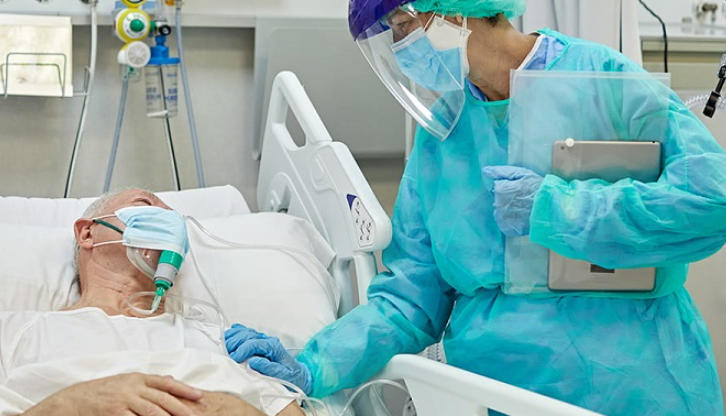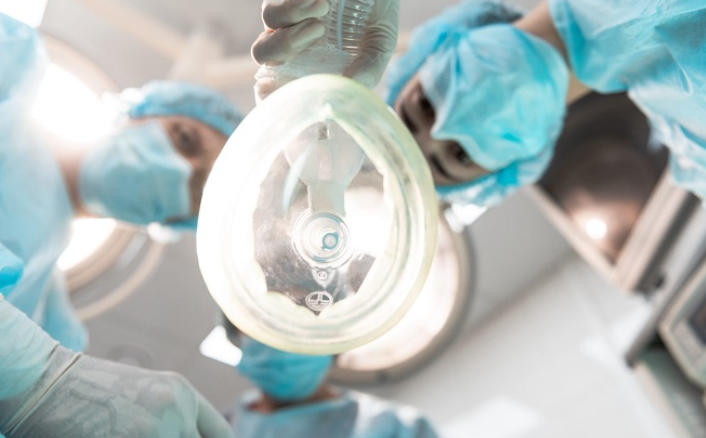Although general anesthesia makes surgeries easier, it also has complications, such as temporary loss of consciousness and pain. In surgery, general anesthesia rarely causes complications, but patients may still worry and feel anxious. In order to make this experience easier, it is helpful to know the types of anesthesia and their complications. This section will introduce you to the operation and side effects of general anesthesia. Please stay with us.

Anesthesia – what is it?
The purpose of anesthesia is to make you not feel the pain of surgery. Different types of this operation serve different purposes. During surgery, some drugs numb parts of the body, while others make the patient sleep by numbing the brain. Most commonly, this type of anesthesia is used for surgery on the head, chest, or abdomen.
What are the effects of anesthesia on the body?
During or before surgery, anesthesia may be administered as inhaled gas or as an intravenous injection. You enter a deeper level of sleep consciousness when you pass out in these ways. As a result, you will not be aware of your surroundings and will not feel any pain.
During surgery, anesthesia temporarily paralyzes the muscles so that the person remains completely motionless. In order to deliver oxygen to the patient, a breathing tube is inserted into the throat and connected to a device.
Anesthesia’s most common side effects
The doctor and surgical team can help prevent postoperative anesthesia complications by prescribing medications and providing care before and during anesthesia. In addition, you will be monitored after surgery to ensure that any problems can be addressed quickly. Anesthesia usually causes side effects that go away within a few hours.
- Vomiting and nausea
Nausea and vomiting are the most common side effects of general anesthesia. You are more likely to experience this complication if you have experienced nausea or vomiting after previous surgeries. Usually, anti-nausea drugs are prescribed before an operation to prevent nausea and vomiting. In case of nausea, they can also be given after the operation.
- Hoarseness and sore throat
A breathing tube may cause a sore throat or hoarseness. This complication is more likely to occur during a longer surgery. While it is impossible to prevent damage to the throat, medications can be used to reduce sore throats after surgery.
- Mouth feeling dry
A dry mouth may be caused by not drinking water or food before and during surgery, or by anesthesia. After surgery, dry mouth usually disappears within 24 hours. Ice and water can prevent dry mouth during this period.
- Feeling shivering
Tremors may be caused by some anesthesia drugs. When the effects of the drugs wear off, this symptom usually disappears. During surgery, a decrease in body temperature can also cause chills. It can be more comfortable to use more blankets until the shivering stops.
Chills can also be caused by fever. It is usually a sign of a pre-surgical infection if a fever appears immediately after surgery.

- Sleepiness
Anesthesia medicines can cause drowsiness and confusion. The first few hours after surgery are usually spent sleeping and waking up. This condition will disappear after a full night’s sleep.
- Pain in the muscles
When used with general anesthesia, muscle relaxants can cause muscle pain. It is also possible to experience body pain while lying still during surgery. During surgery, patients usually complain of body pain, usually back pain, which is caused by immobility.
Anesthesia complications: care and treatment
You will be under constant observation for the first few hours after surgery. Medical treatment will be needed if you develop symptoms of serious anesthesia complications during recovery.
- Uncertainty
The patient’s mental state may be disturbed after regaining consciousness. Being in an unfamiliar environment, such as a hospital, increases confusion and annoyance. In older people with Alzheimer’s or other mental diseases and dementia, anesthesia has a more detrimental effect on memory.
When anesthetic drugs are completely removed from the body, mental problems usually disappear. As well as being hospitalized in the intensive care unit increases the likelihood of confusion and confusion, since the patient is constantly exposed to stimuli such as light, sound of devices, and hospital staff.
- Problems with the urinary system
The bladder muscle is paralyzed by general anesthesia. Besides making urination difficult, it also makes it difficult to recognize when it is time to urinate. During most surgeries, a Foley catheter is inserted, which drains urine directly from the bladder. After catheter removal, both cases cause urinary problems or leakage.
Additionally, it is common to feel irritation and burning when urinating after catheterization. In some cases, these symptoms are mistaken for a urinary tract infection. Catheters increase the risk of urinary tract infections, but most patients do not develop them.
- Problems with the digestive system
In the same way that anesthetics affect bladder function, they also affect bowel function. For several days following surgery, the intestines may not be able to move food and waste. Ileus paralysis is the name given to this complication. After surgery, this problem usually resolves within 5 days.
Outpatients are usually kept in the recovery room until they pass gas, a sign of no ileus, and then sent home.
- Disconnecting the oxygen device is easy
When the surgery is over, the oxygen tube is usually removed and the person can breathe normally again. It may be necessary to keep the oxygen device on after surgery for a few hours if you are old or have health problems.
Rarely, people may need to stay longer in the intensive care unit to allow them to breathe on their own.
- Pneumonia and aspiration
Aspiration occurs when food or liquid enters the lungs during surgery. We literally say that something has been thrown down our throat and our lungs are cleared by coughing up the liquid or food. During surgery, however, it is not possible to cough and the person does not even realize he has aspirated. Serious problems can result from this.
Undigested food can cause pneumonia or pneumonia if it enters the lungs. You should avoid eating and drinking for a few hours before surgery to avoid this problem. Aspirating is less likely if the stomach is empty.
Taking antibiotics and possibly being hospitalized again is necessary if aspiration leads to pneumonia.
- The clot
During surgery, staying immobile for several hours increases the risk of developing a blood clot called deep vein thrombosis. Legs are the most common site of clots.
- Hyperthermia malignant
If this complication is not diagnosed and treated, it can lead to organ failure. It is one of the serious complications of anesthesia that causes a high fever and muscle contraction.
The body’s reaction to anesthetic drugs can cause malignant hyperthermia. A blood test can determine whether you have the gene for malignant hyperthermia if you have a family history of it.
- Anesthesia and consciousness
It is a very rare complication that occurs when a person has not completely lost consciousness. Consciousness has been reported by patients during anesthesia, including remembering conversations in the operating room or seeing, hearing, and feeling everything that happened.
If the appropriate anesthetic is administered, consciousness rarely occurs during anesthesia.
Anesthesia complications are more likely to occur in what types of patients?
Different people are affected by general anesthesia for different reasons. These factors determine the severity of these symptoms:
A person’s current health status and medical history can influence the risk of complications, such as brain, heart, lung, or kidney diseases.
Smoking, drinking, and using drugs are examples of lifestyle choices.
You may also experience problems if a member of your family is allergic to anesthetics.
Complication risk depends on the length and severity of the operation.
Different medications are used for general anesthesia, each of which may have different side effects.
For example, an 85-year-old smoker who has several hours of open heart surgery will have fewer symptoms than a healthy child who has a one-hour surgery to remove tonsils. There are also risks associated with the surgery itself, such as infection, in addition to those associated with anesthesia.
What are the dangers of anesthesia?
General anesthesia is generally very safe. It is quite safe to anesthetize even people with serious illnesses. It is actually the surgery that poses the greatest risk. The following unpleasant consequences of anesthesia are more likely to occur in older people and those who have long surgeries:
After surgery, confusion;
An attack of the heart;
Infection with pneumonia;
Children’s anesthesia complications
Children rarely experience anesthesia complications. Nausea and lethargy are the most common side effects of anesthesia in children. The US Food and Drug Administration warns that prolonged or repeated use of general anesthesia or sedatives in children under 3 years of age can affect their brain development. These side effects of repeated anesthesia are based on animal experiments, of course.
A study of children under 3 years of age who had anesthesia once found that it did not affect their IQ. Definitely, unnecessary surgeries should be postponed until after 3 years of age. Lunar eclipses and birthmarks should be removed after 3 years of age, but eye mismatches should be removed earlier so that the child’s vision doesn’t suffer.
final word
Anesthesia usually has mild side effects and is very rare. A mild complication gets better after a few days and does not require hospitalization. Obviously, there are complications that can endanger a patient’s life, and knowing them can help diagnose and treat them appropriately. A hospital visit is necessary if you notice symptoms such as urinary incontinence, breathing problems, severe inflammation, bleeding, or pain.


